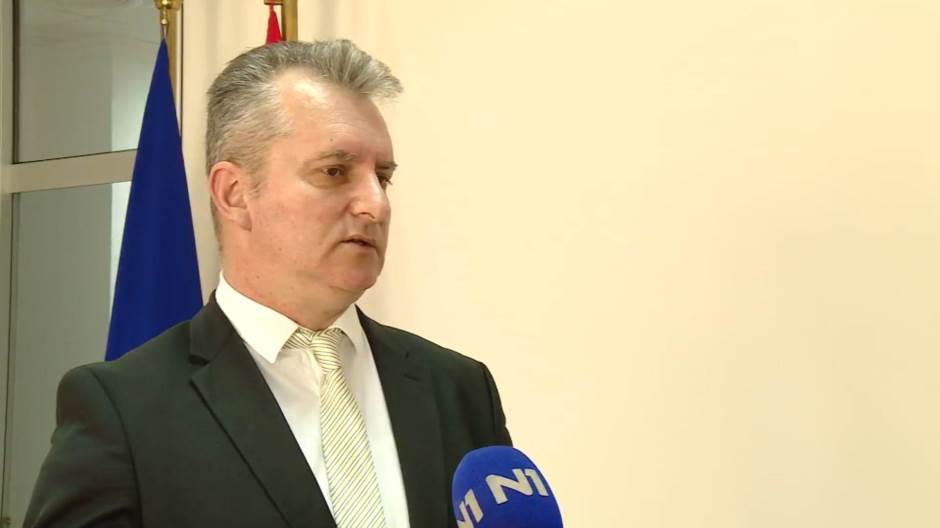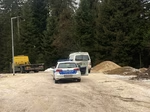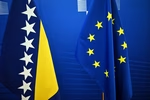Bosnian Croat politician: We might push for the resurrection of Herzeg Bosnia

The leader of a Bosnian Croat party told N1 on Monday that the Croat National Council (HNS), an organisation of Bosnian Croat parties, decided that “if Bosnia becomes completely dysfunctional” they will advocate for the resurrection of Herzeg-Bosnia, a self-declared wartime Bosnian Croat political structure established by Croat nationalists.
Oglas
According to Croatian Peasant Party of Bosnia and Herzegovina (HSS BiH) leader Mario Karamatic, Bosnia is becoming dysfunctional because it cannot form a government six months after the election. The crisis, he said, was caused by a faulty election law which must be changed.
Bosnian Croat nationalists insist that the country’s election law is changed so that people can vote only for members of their own ethnic group. This is vehemently rejected by the country’s Bosniaks and leftist parties.
Karamatic said that Brussels is insisting on the formation of a government in order for the country to proceed toward EU membership but that the election results, as far as the Croats are concerned, will not be implemented unless a new election law is adopted.
Since this status quo cannot be solved, things should go back to square one, he said, and that is the revival of Herzeg Bosnia which was “a legitimate decision by the political leadership.”
“The (HNS) Presidency discussed this and we can start heading in that direction if Bosnia and Herzegovina becomes completely dysfunctional,” he said.
According to the Bosnian Croat politician, “it is not about destabilisation, but about returning to the starting position.”
“It is very difficult to fix Bosnia and Herzegovina as it is or agree on anything,” Karamatic said.
Herzeg-Bosnia was established in the south of Bosnia and Herzegovina in 1991. Its armed forces, the Croatian Defence Council (HVO), were first allied with Bosniak armed forces. But HVO and Bosnia's Army turned against each other after the parastate declared itself a republic on August 28, 1993, and changed its name into the Croatian Republic of Herzeg-Bosna, with Mostar being its capital.
The parastate had the ambition to become part of neighbouring Croatia.
The Croat-Bosniak conflict ended in 1994 with an agreement brokered in Washington, D.C. which prescribed the creation of a Bosniak-Croat Federation entity (FBiH) out of territories controlled by Bosniaks and Bosnian Croats. Herzeg-Bosna was abolished two years later.
Reacting to the frequent use of the term ‘so-called’ when referring to Herzeg Bosnia and it often being called a ‘para-state establishment’, Karamatic said that it is "a matter of perspective.”
“For me, for example, the so-called Republic of Bosnia and Herzegovina is a para-state establishment,” he said.
Kakvo je tvoje mišljenje o ovome?
Učestvuj u diskusiji ili pročitaj komentare
Oglas
Kakvo je tvoje mišljenje o ovome?
Učestvuj u diskusiji ili pročitaj komentare
Oglas
NAJČITANIJE
Oglas
Oglas
Najnovije
Oglas
Oglas





 Srbija
Srbija
 Hrvatska
Hrvatska
 Slovenija
Slovenija



























































